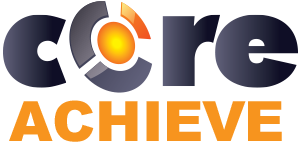The Impact of LMS-based Training on Employee Productivity
July, 06 2023
Other posts:
Enhancing Team Dynamics for Effective Group Decision-Making with LMS Integration
Organizations increasingly rely on collaborative efforts to solve complex problems, innovate, and adapt to change, but how do we ensure that collaboration is happening.
Maximizing Small Business Potential with Training Technology
Training technologies can push small businesses ahead of their competitors, but what are the factors that go into choosing the right technology?
Unlocking Employee Potential: The Transformative Benefits of an Interactive Learning Management System (LMS)
Interactive training allows for unlocking employee potential, but how is it done?
Building a Robust Sales Pipeline with Training
Every organization wants a streamlined sales pipeline, but building one requires a series of interlocking activities with one of the most important being training.
Strategies for Adapting In-Person Training to Online Platforms
Online training is one of the most flexible ways of delivering training across organizations, but how do you even begin to adapt in-person training into online?
In today's landscape, competitors can exist half-way around the world. As such, it's imperative for organizations to take every advantage they can get. One such advantage is with productivity, which can be tricky to be able to consistently push that produ
With so many competitors, organizations constantly need to find ways to boost productivity, giving them a slight—but necessary—edge. One powerful tool that has gained significant popularity in recent years is the Learning Management System (LMS). By leveraging the capabilities of an LMS, organizations can provide comprehensive training programs that not only develop employee skills and knowledge but also have a direct impact on productivity levels. As we go deeper into the key activities and how exactly an LMS can do this, it should be noted that some organizations may have different needs.
Enhancing Skills and Knowledge
Naturally, productivity is directly correlated with having the right skills and knowledge. With LMS-based training, an organization can offer a structured and scalable platform for delivering a wide range of learning content, including interactive courses, videos, simulations, and assessments. By providing employees with access to relevant and up-to-date training materials, organizations can equip their workforce with the necessary skills and knowledge to excel in their roles. As employees become more proficient and knowledgeable, they can work more efficiently, make fewer errors, and deliver higher-quality outputs.
Flexibility and Convenience
Traditional training methods often require employees to attend in-person sessions or workshops, which can be time-consuming and disruptive to daily work routines. LMS-based training, on the other hand, offers flexibility and convenience. Employees can access training materials anytime, anywhere, and at their own pace. This flexibility enables them to balance their training requirements with their job responsibilities, leading to minimal disruptions and increased productivity. The ability to access this information from anywhere, at any time, gives learners the option to brush-up on their skills before or when they are needed, cementing the information further.
Targeted and Personalized Learning
One of the major weaknesses of traditional training is that it cannot meet the unique needs of individuals, an LMS, however, can. This is because of the flexibility; an organization can make training role-specific will a wide-range of content to better fit the needs of all learners. Targeted training is furthered through pre-assessments and data analytics, the LMS can identify knowledge gaps and recommend specific learning paths for each employee. This personalized approach ensures that employees receive the training they need, focusing on areas where improvement is most critical, ultimately making the training much more effective.
Continuous Learning and Skill Development
Increasing productivity is an endless cycle, new technologies, techniques, and information is always evolving with is why continuous learning is necessary. LMS-based training facilitates continuous learning and skill development by offering a variety of resources and opportunities for employees to expand their knowledge and capabilities. Whether it's through microlearning modules, webinars, or access to external learning resources, employees can engage in continuous learning to stay updated with industry trends, best practices, and emerging technologies. By nurturing a culture of lifelong learning, organizations empower their employees to adapt to changing work requirements, enhance their skills, and ultimately drive higher productivity.
Measuring and Monitoring Progress
Training is only so good if you can’t test and monitor changes, and to prove productivity you need to track training. LMS platforms provide robust analytics and reporting features that allow organizations to track learner engagement, completion rates, assessment scores, and other relevant metrics. These insights enable organizations to identify high-performing employees, track the effectiveness of training initiatives, and identify areas where additional support may be required. By leveraging data-driven insights, organizations can make informed decisions, refine their training programs, and continually improve employee productivity.
LMS-based training drastically changed the way organizations approach employee development and productivity enhancement. By providing employees with flexible access to targeted and personalized training, organizations can equip their workforce with the skills, knowledge, and confidence to excel in their roles. The convenience, continuous learning opportunities, and data-driven insights offered by LMS platforms enable employees to continually enhance their productivity levels. By investing in an LMS platform, organizations can provide a solid base to begin pushing their productivity forward.

Leave comment: